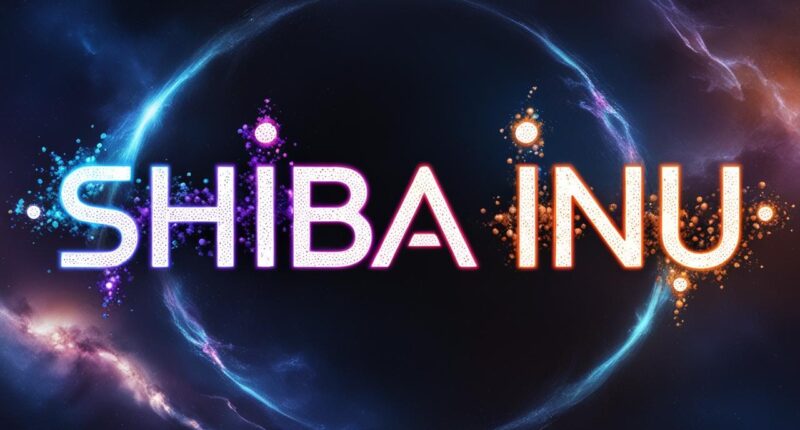Shiba Inu (SHIB) is a decentralized cryptocurrency launched in August 2020. It is built on the Ethereum blockchain as an ERC-20 token and draws inspiration from Dogecoin. Initially, it had a supply of 1 quadrillion tokens, with half allocated for liquidity. Key components of its ecosystem include a decentralized exchange called ShibaSwap and an NFT collection named Shiboshis. Despite its popularity, SHIB faces challenges like speculative trading and regulatory concerns, inviting further exploration of its impact.
Shiba cryptocurrency, often referred to simply as SHIB, emerged as a notable player in the digital currency space when it was created in August 2020 by an anonymous developer known as “Ryoshi.” This digital asset was inspired by the popular Dogecoin and the Shiba Inu dog breed, beginning as a decentralized experiment aimed at building a community.
Built on the Ethereum blockchain, SHIB is an ERC-20 token that initially launched with a staggering total supply of 1 quadrillion tokens. In terms of tokenomics, half of the initial supply was locked in Uniswap to guarantee liquidity, while the other half was sent to Ethereum co-founder Vitalik Buterin. He chose to burn 40% of the total supply, which reduced the circulating supply considerably. The token burning strategy has been a key approach to enhance scarcity and value. Additionally, SHIB operates within a three-token system that includes LEASH and BONE to support its ecosystem.
SHIB, an ERC-20 token on Ethereum, launched with 1 quadrillion tokens, with significant supply reduction through strategic burns.
As of 2024, approximately 589 trillion SHIB tokens remain in circulation. The ecosystem comprises several components, including SHIB as the main transactional token, LEASH, a limited supply token with only 107,646 tokens, and BONE, a governance token with a total supply of 250 million tokens.
ShibaSwap serves as a decentralized exchange for trading within this ecosystem, and Shiboshis is an NFT collection featuring Shiba Inu characters. SHIB serves various purposes, such as a medium of exchange for goods and services, staking on ShibaSwap for rewards, and providing governance voting rights with the BONE token.
The cryptocurrency reached an all-time high price of $0.00008616 in October 2021 and saw its market cap peak over $40 billion during the 2021 bull run. Despite its popularity, SHIB faces challenges, including a lack of inherent utility beyond speculation, concerns regarding centralization with large whale wallets, and regulatory uncertainties.
The SHIBArmy, a large and active community, plays a fundamental role in promoting the cryptocurrency through social media and viral marketing campaigns. Celebrity endorsements, particularly from figures like Elon Musk, have added to its visibility. However, skepticism remains from traditional finance sectors and competitors in the meme coin space.
Frequently Asked Questions
How Do I Buy Shiba Inu Cryptocurrency?
To buy Shiba Inu cryptocurrency, first choose a cryptocurrency exchange, comparing fees and security features.
Create an account and complete identity verification. Fund the account with fiat currency, then locate the SHIB trading pair.
Place a market or limit order to buy SHIB. Alternatively, use a peer-to-peer marketplace, agreeing on terms with a seller.
Payment apps can also facilitate purchases, allowing users to buy SHIB and store it in linked wallets.
What Wallets Support Shiba Inu Tokens?
Several wallets support Shiba Inu tokens, offering users various storage options.
Hardware wallets like Ledger Nano S, Trezor Model T, and KeepKey are compatible with SHIB.
Software wallets, including MetaMask, Trust Wallet, and Coinbase Wallet, also provide SHIB support.
Exchange wallets such as Binance and Crypto.com facilitate SHIB trading and storage.
Additionally, specialized wallets like ShibaSwap and the Shiba Inu Wallet app cater specifically to SHIB users, enhancing accessibility and functionality.
Is Shiba Inu a Good Investment?
Determining whether Shiba Inu is a good investment requires careful consideration of various factors.
It has a low entry price and strong community support, which may attract investors. However, it also poses risks, such as high volatility and limited real-world utility.
Potential investors should evaluate their risk tolerance, stay informed about market trends, and diversify their portfolios.
Conducting thorough research and having a clear investment strategy is essential before making any financial commitments.
How Does Shiba Inu Compare to Bitcoin?
Shiba Inu and Bitcoin differ greatly in origin, market capitalization, and use cases.
Created in 2020 as a meme coin, Shiba Inu has a market cap of approximately $7.43 billion, while Bitcoin, established in 2009, boasts around $1.66 trillion.
Bitcoin is a digital gold used for investment and payments.
In contrast, Shiba Inu serves diverse functions, including payments and NFTs, but lacks Bitcoin’s institutional adoption and long-term track record.
What Are the Risks of Investing in Shiba Inu?
Investing in Shiba Inu carries several risks.
Market volatility is significant, with prices often fluctuating drastically. Limited practical applications mean its value is largely speculative, and its ecosystem is still developing.
Additionally, regulatory scrutiny poses risks, as sudden changes could impact trading. Concentration of tokens among a few holders raises concerns about price manipulation.
These factors combined create a high-risk investment environment that potential investors must carefully consider before participating.
References
- https://cointelegraph.com/learn/articles/shiba-inu-coin-a-beginners-guide-to-the-shib-cryptocurrency
- https://www.youtube.com/watch?v=G8RiXbZa7Zw
- https://komodoplatform.com/en/academy/what-is-shiba-inu-shib/
- https://www.tokenmetrics.com/blog/what-is-shiba-inu-coin
- https://www.tokenmetrics.com/blog/will-shiba-inu-coin-reach-1
- https://paxful.com/university/en/what-is-shiba-inu-shib-crypto
- https://en.wikipedia.org/wiki/Shiba_Inu_(cryptocurrency)
- https://weareblox.com/en-eu/shiba-inu
- https://www.investopedia.com/shiba-inu-shib-5207903
- https://www.coinmama.com/academy/what-is-shiba









